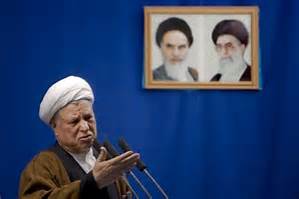
Ninety-eight percent of would-be candidates, let alone Iranians themselves, are too liberal for representation in the system. Another way to think about that is that if Rafsanjani was a moderate or voice of reform, then moderation in the Islamic Republic includes an embrace of incitement to genocide, assassination, torture, and terrorism. It is this belief in the meaningfulness of factionalism that can lead to such destructive U.S. policies. Jake Sullivan, Secretary of State Hillary Clinton’s chief foreign policy advisor, justified Clinton’s outreach to Iran in the belief that President Hassan Rouhani represented a Deng Xiaoping moment, in which an embrace of the reformers could lead to their ultimate triumph against hardliners. History shows it did not happen in China and it also enabled Iran’s good cop-bad cop strategy.
The desire to find moderation and meaning within factional struggles expands beyond just Iran. Talk to European or even American diplomats who work in the Middle East about Hezbollah or Hamas and they will describe a nuanced view that divides the movements into hardline and more pragmatic factions. The fact that those moderate Hamas factions still embrace a covenant that calls for genocide against Jews is left unsaid. (…)
Moral clarity is important. Diplomats should define moderation consistently: Moderates neither engage in terrorism nor endorse it. They do not seek to wipe other nations of the face of the earth. They do no preach religious hatred. Relative moderation should not be a consideration for accepting it only legitimizes different flavors of extremism.“ (Michael Rubin: „What Rafsanjani Hagiography Exposes“)






